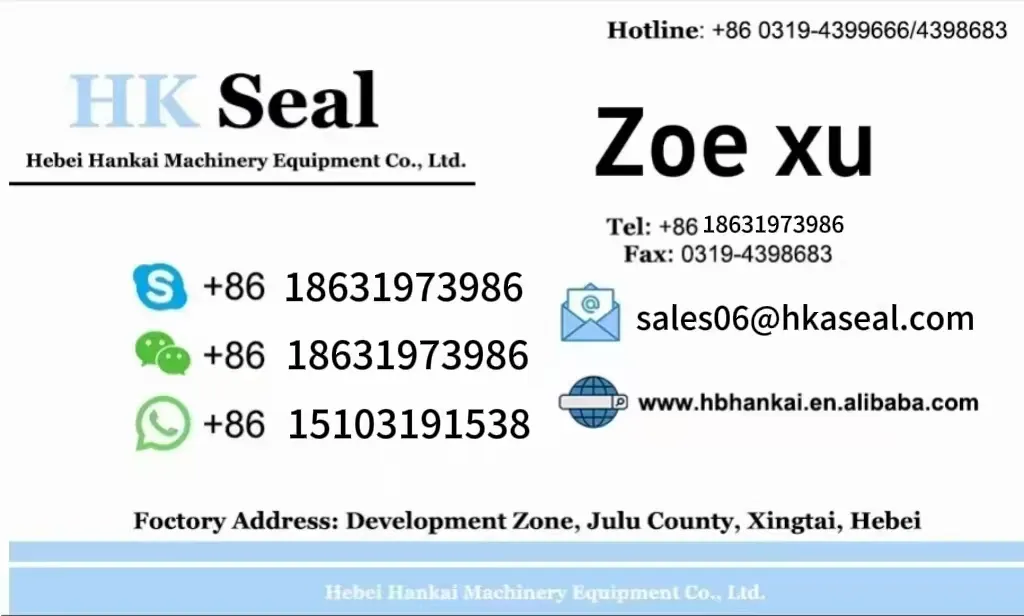Nov . 12, 2024 06:12 Back to list
what is the purpose of oil seal
The Purpose of Oil Seals Essential Components in Mechanical Systems
Oil seals, often overlooked in the realm of engineering components, play a crucial role in ensuring the efficient operation of various machinery and mechanical systems. These seals are designed to prevent leakage of lubricants and to protect internal components from contaminants. Understanding their purpose is essential for anyone involved in maintenance, repair, or design of engines, gearboxes, and numerous other mechanical systems.
1. Preventing Oil Leakage
One of the primary functions of an oil seal is to prevent the leakage of oil or other lubricants from the machinery. In machines like engines, gearboxes, and pumps, lubricating oils are circulated to reduce friction between moving parts, thereby preventing wear and tear. If oil leaks occur, not only is the efficiency of the machine compromised, but it could also lead to insufficient lubrication, resulting in catastrophic failures. Oil seals, made from flexible materials like rubber or synthetic compounds, adhere snugly to shafts and housings, creating a barrier that keeps the oil contained.
2. Protecting Against Contaminants
Oil seals also serve an important protective function by keeping contaminants such as dust, dirt, and moisture from entering the internal components of machinery. Contaminants can result in abrasive wear, leading to severe damage and a significant reduction in the lifespan of mechanical parts. By providing a reliable barrier, oil seals enhance the overall durability of the system and maintain its operational integrity.
The applications of oil seals are extensive and varied. They are utilized in automotive engines, industrial machines, agricultural equipment, and household appliances. For instance, in automotive applications, oil seals are found in timing covers, crankshafts, and around various gears. They help ensure that the lubricating oil does not leak from these areas and that the internal components remain free from contaminants.
4. Types of Oil Seals
what is the purpose of oil seal

There are several types of oil seals, designed for specific applications and conditions. The most common types include
- Lip Seals These have a flexible lip that presses against the shaft to create a seal, ideal for dynamic applications where there is relative movement between surfaces. - Labyrinth Seals Primarily used in high-speed applications, these seals employ a series of interlocking passages to restrict the flow of fluids. - V-Seals These seals are typically used to provide a secondary sealing effect and are often found on rotating shafts.
5. Material Considerations
The materials used to manufacture oil seals are critical to their performance. Common materials include various types of rubber, polyurethane, and synthetic elastomers. Each material has specific properties that make it suitable for particular temperatures, pressures, and chemical exposures. For example, Viton seals are resistant to high temperatures and aggressive chemicals, whereas nitrile seals are suitable for petroleum-based oils but may not perform well in extreme temperatures.
6. Importance in Maintenance
In the context of maintenance, regular inspection and replacement of oil seals are vital. A worn or damaged seal can lead to significant issues, such as leaks and contamination, which can ultimately result in more severe mechanical failures. Routine checks for signs of oil accumulation, dry rot, or cracking in the seals can prevent costly repairs and enhance the longevity of machines.
Conclusion
In summary, oil seals are indispensable components in ensuring the optimal performance and longevity of mechanical systems. Their ability to prevent oil leakage and protect against contaminants makes them fundamental in a wide range of applications across various industries. Understanding their purpose and maintaining them properly is critical for anyone involved in the engineering and maintenance of machinery. As technology advances and machinery becomes more complex, the role of high-quality oil seals will only continue to grow in importance, ensuring efficient operation and reliability across a vast array of mechanical systems.
-
TCN Oil Seal Metal Ring Reinforcement for Heavy Machinery
NewsJul.25,2025
-
Rotary Lip Seal Spring-Loaded Design for High-Speed Applications
NewsJul.25,2025
-
Hydraulic Cylinder Seals Polyurethane Material for High-Impact Jobs
NewsJul.25,2025
-
High Pressure Oil Seal Polyurethane Coating Wear Resistance
NewsJul.25,2025
-
Dust Proof Seal Double Lip Design for Construction Equipment
NewsJul.25,2025
-
Hub Seal Polyurethane Wear Resistance in Agricultural Vehicles
NewsJul.25,2025
-
The Trans-formative Journey of Wheel Hub Oil Seals
NewsJun.06,2025
Products categories
















